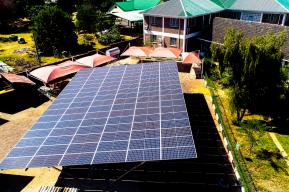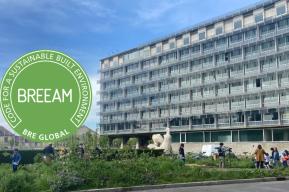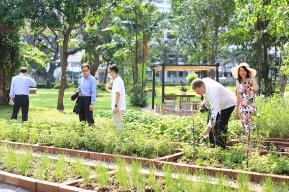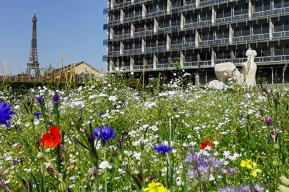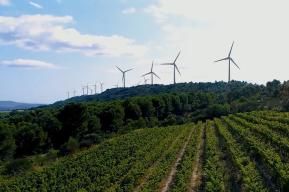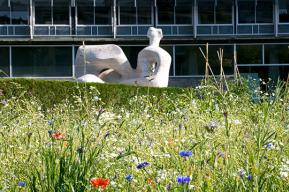News
UNEP report reveals impact of COVID-19 on UN system’s environmental footprint
The UN Greening the Blue Report measures the environmental footprint of UN organizations and showcases their efforts to reduce it. The 2021 edition, released by the UN Environment Programme this November, is the first to reveal the impact of the COVID-19 pandemic on the UN system’s carbon emissions. It also highlights UNESCO’s urban garden as good practice contribution to biodiversity.
Greening the Blue, launched in 2008, collects UN System-wide data on greenhouse gas (GHG) emissions, water and waste management. This year’s Report analyses the 2020 environmental data of 56 UN system entities, covering over 315,000 personnel in Headquarters, field offices and operations on the ground. It expands reporting on the management functions identified in the Strategy for Sustainability Management in the United Nations 2020-2030, Phase I: Environmental Sustainability in the Area of Management, such as procurement and human resources.
Drastic decrease of emissions
In 2020, the UN's operations and facilities emitted a total of 1.5 million tonnes of carbon dioxide equivalent. This is approximately 25 per cent fewer GHG emissions than in 2019. The steep reduction reflects the sudden and dramatic adaptations in operations that had to be made throughout 2020, as a result of the global COVID-19 pandemic.
The drop was even sharper at UNESCO, which emitted a total of 8 079 tonnes of CO2eq in 2020: 63% less than in 2019. This is mainly due to the drastic reduction in air travel (83% less than in 2019) which now represents less than 30% of UNESCO’s emissions, compared to over 64% in 2020.
Climate neutrality and contribution to biodiversity
UNESCO also figures among the 99% of UN entities that were climate neutral in 2020, meaning that the organization offset all reported GHG emissions. This was achieved through the purchase of Certified Emission Reductions, partially via the UN Adaptation Fund, and partially from two UN-certified emission-reduction projects: a clean cook stove project in Malawi and a hydropower dam in Fiji. While offsetting remains an important factor in managing unavoidable emissions, the priority should be emission reduction and elimination.
UNESCO has made significant efforts in the past years to improve its environmental performance by setting up an organization-wide environmental management system. This is also recognized in the Greening the Blue report which features a case study on page 23 of the new biodiversity and vegetable garden at UNESCO Headquarters.
For more information:
Full Greening the Blue report 2021, including methodology used for the greenhouse gas emissions, waste and water inventories
Methodology related to travel emissions provided by the International Civil Aviation Organization (ICAO)
Climate neutrality (UN Climate Change)
UNESCO profile page on Greening the Blue website
Environmental Management at UNESCO
Staff guide to a Green UNESCO

24 November 2021
Last update:20 April 2023


